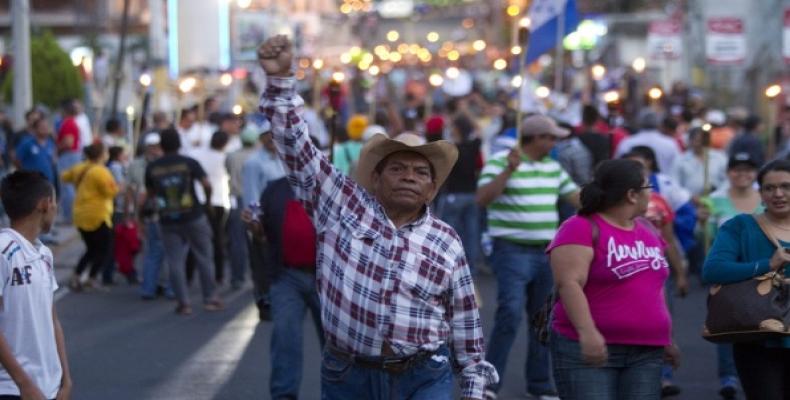Tegucigalpa, September 15 (teleSUR-RHC)-- The Honduran government accepted Monday a comprehensive reform plan proposed by the Organization of American States (OAS) for its justice system, but the plan does not include the proposal of creating a U.N.-backed anti-impunity body, a strong and recurrent demand of the country’s Outraged or Indignados movement.
A formal committee created on Monday will begin discussing its implementation with the OAS. But the plan has left some political activists discouraged, who felt Honduras needs an anti-impunity commission modeled after Guatemala.
Last week, conservative Honduran President Juan O. Hernandez received the OAS recommendations and told Foreign Minister Arturo Corrales and the National Council of Defense and Security to prepare a response, which will be negotiated with the regional body.
The response does not suggest any modification to the OAS document, but considers how to concretely implement the reform in the Central American country, a member of the Honduran delegation told El Heraldo newspaper.
The reform could cost some $6 million, according to a preliminary estimate from the executive. It was elaborated at the Center of Justice Studies of the Americas (CEJA), which depends on the OAS.
The CEJA proposed the need for deep reform of the country's judicial institutions, regarding the efficiency of the implementation of criminal reforms, the selection of judges and magistrates, and the structure and management of the Public Ministry, the Supreme Court and the Public Defense.
The body also recommended studying the training mechanism of judges and attorneys, and creating a transparency supervising body of the Judicial Power and the Attorney General's Office.
Political and civil society sectors were consulted earlier in July and September over adequate measures to fight corruption and impunity.
However, the CEJA found the proposal of creating a U.N.-backed anti-impunity body on the model of Guatemala, as many civil society groups have been demanding in recent months, was not suitable for Honduras.


